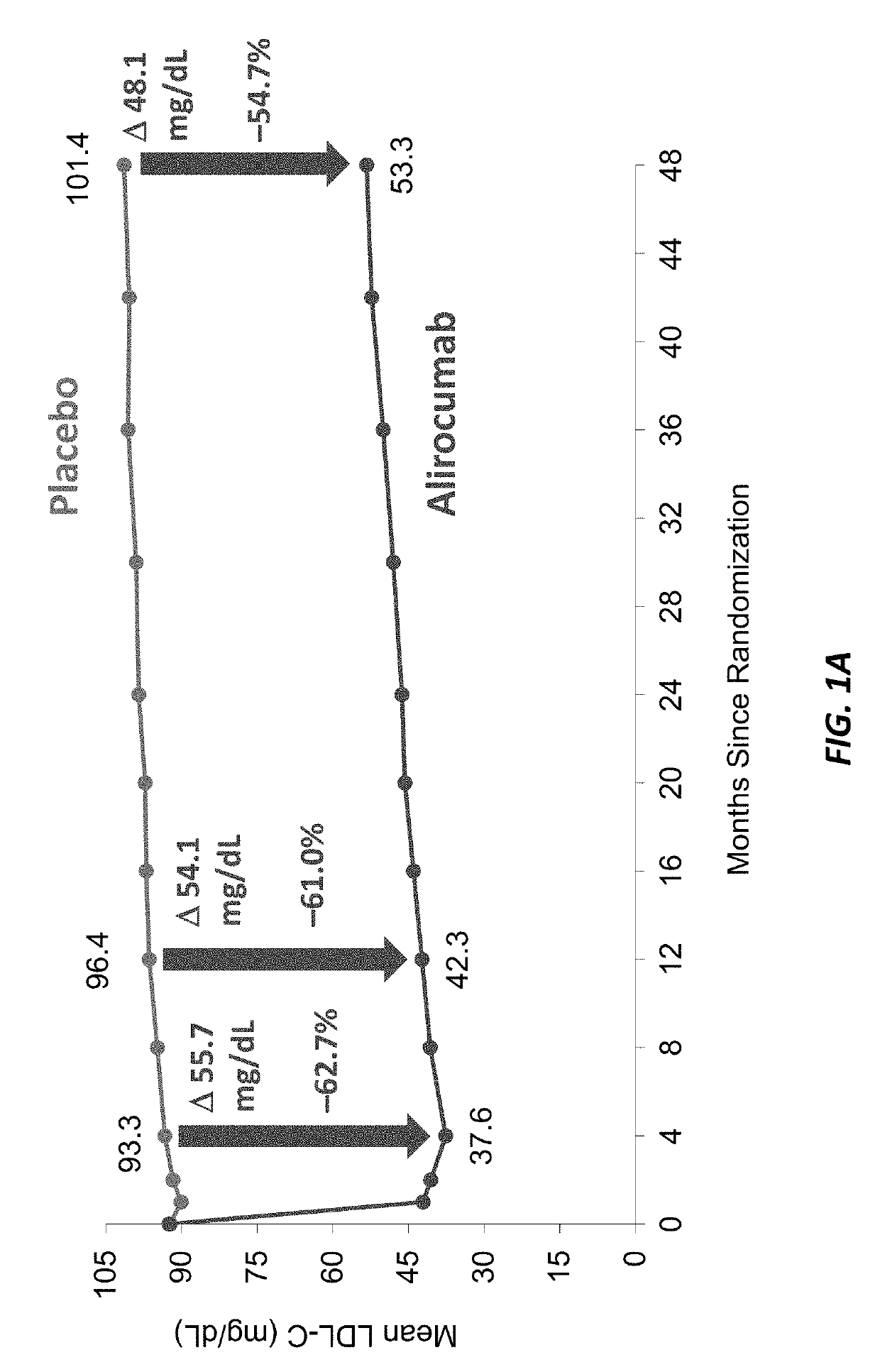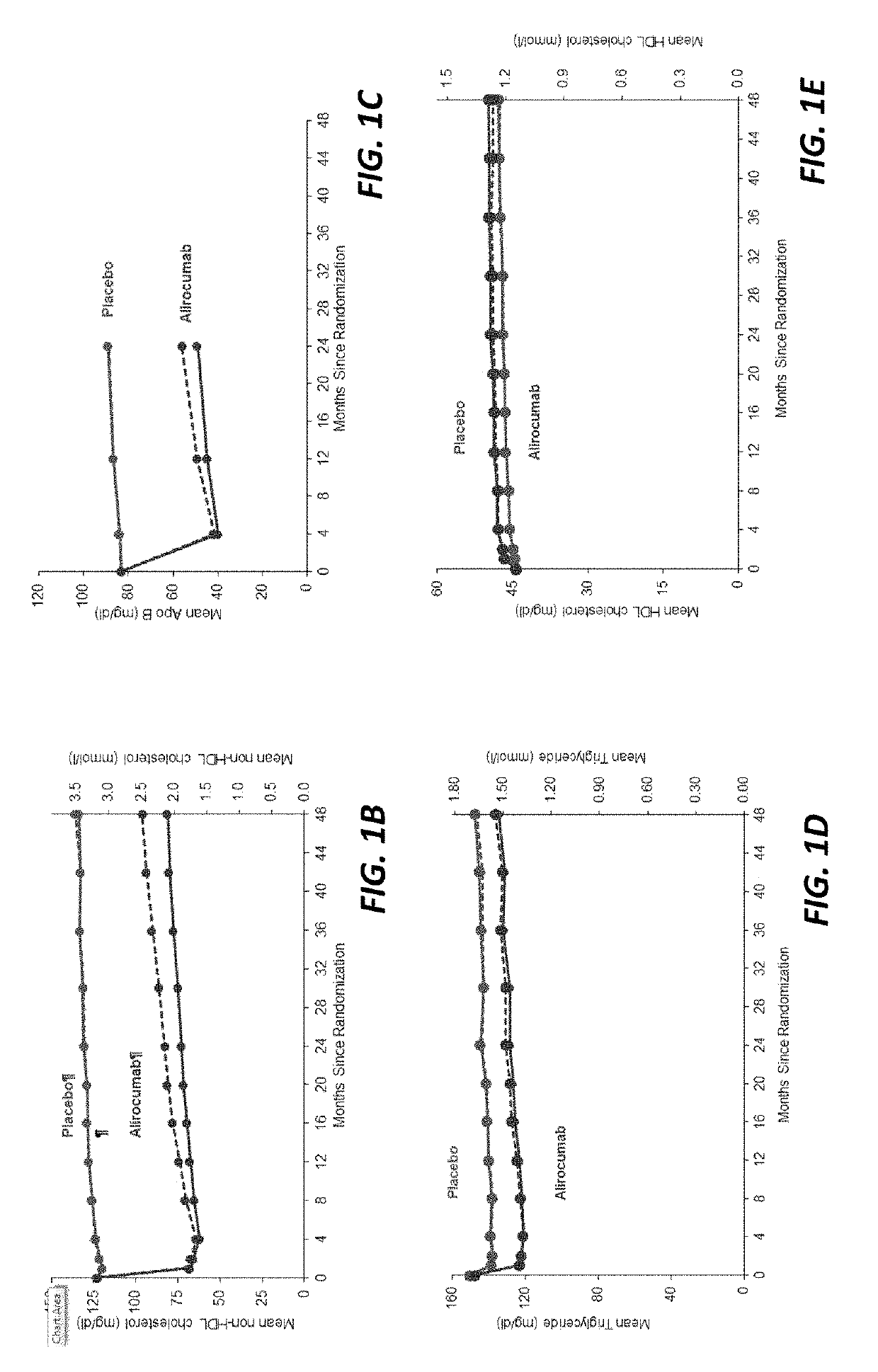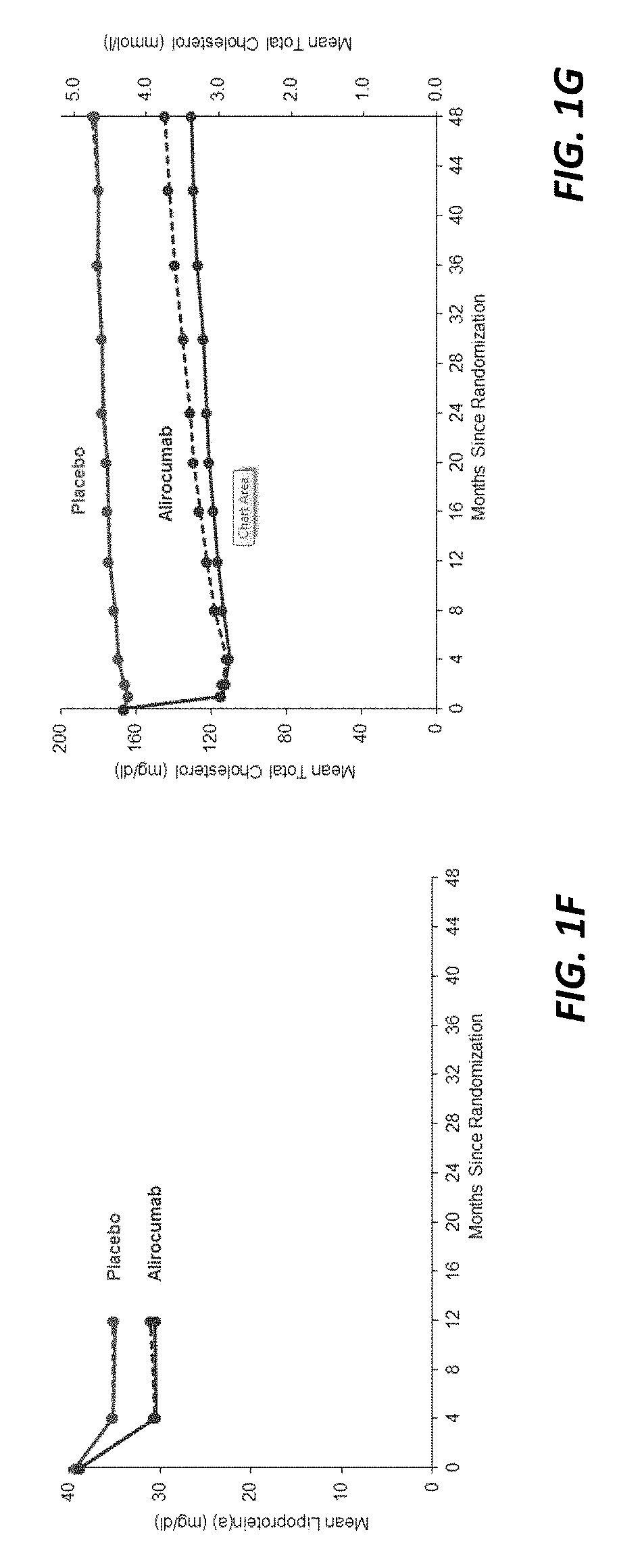Methods for reducing cardiovascular risk
a cardiovascular risk and method technology, applied in the field of cardiovascular risk reduction, can solve the problems of patients with recent acute coronary syndrome (acs) being at very high risk for suffering recurrent coronary events, many high cv risk patients cannot achieve such levels, and patients are at substantial “residue risk” , to achieve the effect of reducing cardiovascular risk, reducing atherogenic lipoproteins, and reducing cardiovascular risk and/or events
- Summary
- Abstract
- Description
- Claims
- Application Information
AI Technical Summary
Benefits of technology
Problems solved by technology
Method used
Image
Examples
example 1
n of Human Antibodies to Human PCSK9
[0213]Human anti-PCSK9 antibodies were generated as described in U.S. Pat. No. 8,062,640, which is incorporated by reference herein in its entirety. The exemplary PCSK9 inhibitor used in the following Examples is the human anti-PCSK9 antibody designated “mAb316P,” also known as “REGN727,” or “alirocumab.” mAb316P has the following amino acid sequence characteristics: a heavy chain comprising SEQ ID NO:5 and a light chain comprising SEQ ID NO:9; a heavy chain variable region (HCVR) comprising SEQ ID NO:1 and a light chain variable domain (LCVR) comprising SEQ ID NO:6; a heavy chain complementarity determining region 1 (HCDR1) comprising SEQ ID NO:2, a HCDR2 comprising SEQ ID NO:3, a HCDR3 comprising SEQ ID NO:4, a light chain complementarity determining region 1 (LCDR1) comprising SEQ ID NO:7, a LCDR2 comprising SEQ ID NO:8 and a LCDR3 comprising SEQ ID NO:10.
example 2
Alirocumab, a Monoclonal Antibody to PCSK9, on Long-Term Cardiovascular Outcomes Following Acute Coronary Syndrome: Protocol
Introduction
[0214]Statins have been approved for clinical use since 1987. However, since that time, no non-statin lipid lowering therapy has been associated with reduced death from any cause. Inhibition of PCSK9 provides an opportunity to determine whether substantial further reduction of LDL-C and other atherogenic lipoproteins can provide further improvement in cardiovascular outcomes beyond those afforded by statins, including an impact on reduced mortality.
[0215]This study queried whether alirocumab, a fully human monoclonal antibody to PCSK9, could reduce cardiovascular risk, including mortality, when added to optimal statin therapy. Patients with recent acute coronary syndrome were chosen as the study population because they faced a higher risk of recurrent events than patients with stable cardiovascular disease, and therefore might derive a larger absolu...
example 3
Alirocumab, a Monoclonal Antibody to PCSK9, on Long-Term Cardiovascular Outcomes Following Acute Coronary Syndrome: Results
[0234]This study showed for the first and only time that a non-statin lipid lowering therapy was associated with reduced death from any cause.
Study Patients
[0235]A total of 18,924 patients were enrolled at 1,315 sites in 57 countries in this study. The qualifying acute coronary syndrome (ACS) was myocardial infarction in 83.2% of patients and unstable angina in 16.8% of patients. Most patients (92.1%) qualified with an LDL cholesterol of 70 mg per deciliter or higher. An additional 4.2% fulfilled only the non-HDL-cholesterol criterion and 0.3% fulfilled only the apolipoprotein B criterion. Median time from qualifying acute coronary syndrome to randomization was 2.6 months (interquartile range, 1.7 to 4.3) for the entire population, 2.6 months (interquartile range, 1.7 to 4.4) for alirocumab treatment group, and 2.6 months (interquartile range, 1.7 to 4.3) for th...
PUM
| Property | Measurement | Unit |
|---|---|---|
| threshold | aaaaa | aaaaa |
Abstract
Description
Claims
Application Information
 Login to View More
Login to View More - R&D
- Intellectual Property
- Life Sciences
- Materials
- Tech Scout
- Unparalleled Data Quality
- Higher Quality Content
- 60% Fewer Hallucinations
Browse by: Latest US Patents, China's latest patents, Technical Efficacy Thesaurus, Application Domain, Technology Topic, Popular Technical Reports.
© 2025 PatSnap. All rights reserved.Legal|Privacy policy|Modern Slavery Act Transparency Statement|Sitemap|About US| Contact US: help@patsnap.com



